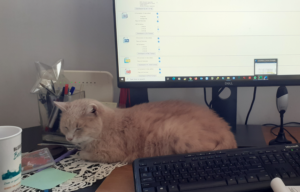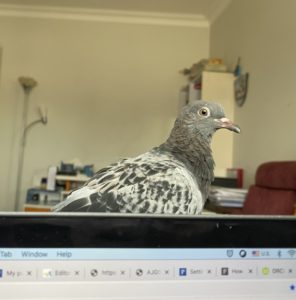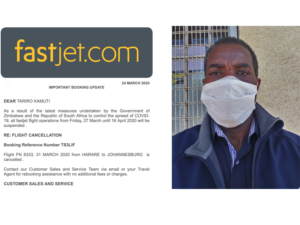We asked a few of our members to write a few words about their experiences of lockdown in their regions. Here are some of their stories…
Cristina Lincaru, National Scientific Research Institute for Labour and Social Protection, Bucharest, Romania
My lockdown experience in Ciolpani, close to Bucharest /Romania
My dear friends from the RSA Community,
There is one year in less than a month since the Covid Pandemic started the digital transformation for real. I am a Researcher in Bucharest/ Romania, and I now feel connected to global science networks. There are opening a lot of learning opportunities, especially with RSA’s huge spectrum of digital events! It is a miracle to get access worldwide to large communities’ events concerning the world’s problems. I feel, let’s say, the pulse of the planet! This change is a tremendous improvement! It marks the shift from isolation, the frustration of difficult access to free joining, openness and direct participation in events that changes our lives! For sure, this year will be the year that “kills” frustrations and open the “cooperation” trajectories, thinking that “the sky is the limit”.
I now live with the paradox of proximity disconnection with my office (in my case, the Institute) coupled with joining the extremely vibrant policy and science developments at the European level. I am closer to my parents, and even if the access to medical services is slow and difficult, together we have overpassed some non-COVID-19 fundamental health problems.
My work is now the greatest joy and, while I am teleworking, I have my first assistant Shela (the sleeping cat from the photo).

Wishing you a beautiful spring full of joy and happiness,
Cristina
Abeer Elshater, Professor of Urban Morphology, Department of Urban Planning, Faculty of Engineering, Ain Shams University, Cairo, Egypt
Birds become free, and humans are caged.
In March 2020, a coin flipped that created a new story that took place in my life during the Coronavirus lockdown. In this month, all Egyptians were locked in their homes and all academic institutions were completely closed. After implementing a briefly renewed quarantine policy, a new visitor nodded my son’s window. It was a new-born bird falling from a nearby nest raised high on the upper surfaces of our building. With our inability to tell what kind of bird he/she was, we called it Fikrey (“my thought” in Arabic) with a plan to allow him to release himself after he could fly and feed himself independently. After less than three months, becoming a pigeon, it was able to fly freely inside my home and get back to stand on everybody’s shoulders. Seeing birds close to anybody might be a common occurrence in some European cities like Graz, Austria; Lugano, Switzerland; Milan, Italy and Stuttgart, Germany. However, birds approaching us in Cairo is strange.
Interestingly, Fikrey attended all my online classes near me; it knew the faces and voices of my students. He is now completely free to fly in the sky, and he has his own family. Nowadays, my family members spread the seeds, and other birds come daily to eat on our widow, leaving a story engraved in our memory.
Fikrey helped my family to rethink on the creatures that live around us. We noticed that during the lockdown and the absence of people in public places, stray dogs and free rooming cats were free to live their own lives without being afraid of walking on the streets; their monsters were tied in at homes. These stray animals are like household pets moving around in the dark searching for food in bins.
Sadly, I realised how lousy friends human beings are -in some places- towards our neighbours living around in our environments. Aside from spending a lot of time with my family during the lockdown, COVID-19 has turned the other side of the coin to show us with evidence how we are not living alone on Earth, and my non-human neighbours might need support and warm welcome from some of us.

Dr Femi Abiodun, University Teacher, Department of Geography, University Of Ibadan, Nigeria
Nigeria should be locked down because of “Wicked Problems”, Not COVID-19
While the lockdown of regions is adjudged the most effective measure to curtail the spread of COVID-19 across the world, the Nigerian experience suggests that lockdown could be counterproductive in poor regions and especially in dysfunctional states. Lockdown began effectively on Monday 30th March 2020 with a presidential directive for the cessation of socio-economic activities in three states namely, Lagos State – the epicentre of COVID-19, Ogun State – Lagos’s nearest neighbour and Abuja – the Federal Capital Territory for an initial period of two weeks. Although the remaining 34 states were not completely lockdown, there was a ban on inter-sate movement. While the lockdown seemed justified given the severity of COVID-19, the shortness of the notice (24-hour) left many households without food and other basic necessities. In any event, even if adequate time was allowed to prepare, most Nigerians are poor and could not have stock up food and other basic necessities that would sustain their households for more than a day or two. Restriction of movement meant restricted access to portable water supply for a large proportion of Nigerian households who do not have improved water source within their premises. What is more, restriction of inter-state movement made the transportation of agricultural produce within and between the regions of the country difficult with farmers at the receiving end. The palliative measures put in place by the government to cushion the impact of the lockdown had no appreciable impact, as there was very little trickle down to the poor and most vulnerable segment of the population, due partly to unavailability of up-to date, dis-aggregated population data and partly due to corruption. If anything, the lockdown exposes the inadequacies of the social security systems in Nigeria. There are insinuations that “wicked problems” like poverty, hunger, armed banditry, insurgencies, kidnapping, corruption, bad governance, among others have claimed more lives in Nigeria than COVID-19. So, Nigeria should be lockdown, because of these “wicked problems”, and not because of COVID-19.
Tariro Kamuti, Research Fellow, University of the Free State, South Africa
Lockdown Tales
The idea of a lockdown was so remote for me as I used to hear over the news and social media about the intensifying and devastating consequences of COVID-19 far afield in Wuhan, China in early 2020. Things that I normally take for granted dramatically changed with the lockdown. As someone based in Cape Town, South Africa, I travelled by air back home to Harare, Zimbabwe for a vacation in February 2020. Everything was normal. I even extended my stay in Zimbabwe without second thoughts. South Africa was the first to announce a lockdown and all the borders and airports were shut down to passenger traffic. Zimbabwe followed suit. Soon I was to receive a notice of cancellation of my return flight. Reality struck, as I was ‘stuck’ in my home country. Ironic, isn’t it?
Well, I ended up staying in my home country for a full year. Luckily, I was in the midst of family, so a positive outcome than would have happened back in South Africa. The lockdown measures came, with new realities of wearing a mask, sanitising and practising social distancing to visit, for instance, the grocer. On my return to Cape Town, South Africa in early February 2021, the processes of getting a COVID-19 certificate, constant sanitising to experiencing solemn situations around airports, meant that life has changed in an unprecedented manner in our lifetime.

Are you currently involved with regional research, policy, and development, and want to elaborate your ideas in a different medium? The Regional Studies Association is now accepting articles for their online blog. For more information, contact the Blog Editor at RSABlog@regionalstudies.org.